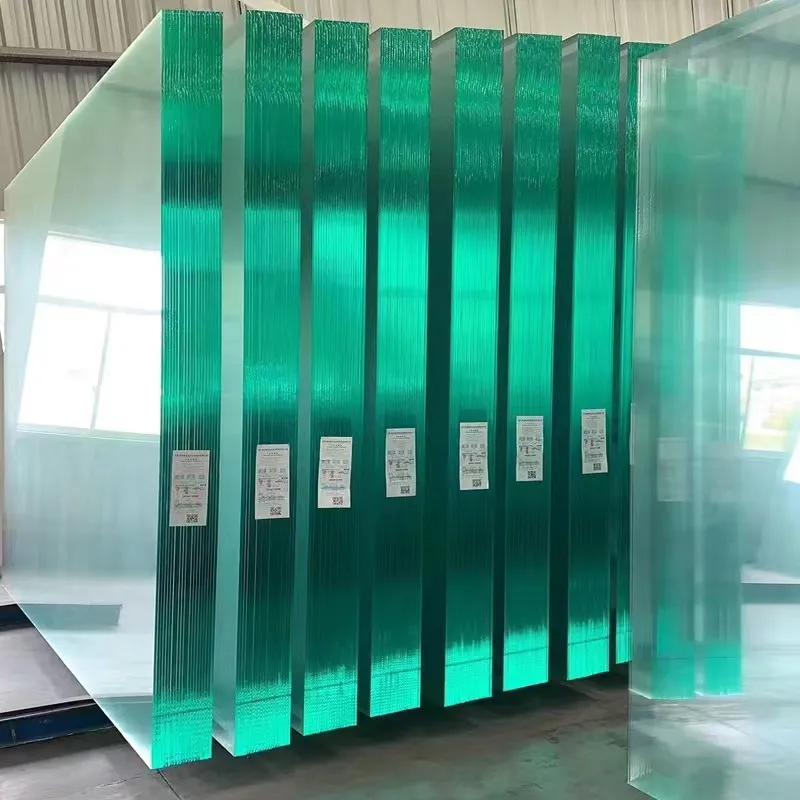The Cost of Safety Glass Per Square Foot
When it comes to construction and interior design, the choice of materials is a critical consideration. Among the various options available, safety glass has gained prominence for its durability and protective features. Understanding the cost of safety glass per square foot is essential for budgeting and project planning.
Safety glass, which includes tempered glass and laminated glass, is specifically engineered to withstand impacts and reduce the risk of injury when shattered. Tempered glass, produced through a heating and cooling process, is approximately five to six times stronger than regular glass. Laminated glass, on the other hand, consists of two or more panes bonded together with an interlayer that holds the glass fragments in place upon breakage. These critical characteristics make safety glass an ideal choice for areas with high traffic or where risk of injury is a concern, such as in public buildings, transportation hubs, and residential properties.
The cost of safety glass varies significantly based on several factors, including type, thickness, size, fabrication processes, and any additional treatments such as coating. On average, the price of safety glass ranges from $6 to $20 per square foot. Tempered glass tends to be more expensive than standard glass but offers greater strength and safety. Laminated glass can also command a higher price due to its manufacturing process and superior safety features.
cost of safety glass per square foot
Size plays a crucial role in the cost calculation. Larger sheets of safety glass can sometimes lead to a lower per square foot price, as bulk production and shipping may reduce overall costs. Conversely, customized or irregular shapes may incur additional charges for cutting and finishing. Thickness also impacts pricing; thicker glass provides enhanced safety but at a higher cost.
Another factor that might influence costs is the location of the project. Regional variations in materials and labor costs can lead to differences in glass pricing. Urban areas with higher demand and costs may see increased pricing compared to rural areas where materials might be more readily available. Additionally, transportation costs should be factored into the total expenditure, especially for large quantities of glass that need to be delivered to construction sites.
For homeowners and builders, it's essential to consider not just the initial costs but also the long-term benefits of using safety glass. While the upfront investment may be higher, the durability, energy efficiency, and safety features can lead to savings over time. For example, safety glass can help improve energy efficiency by reducing heat loss, thus lowering heating and cooling bills. Furthermore, using safety glass can add value to a property, as it appeals to prospective buyers looking for modern safety features.
In conclusion, understanding the cost of safety glass per square foot is vital for anyone involved in construction or renovation projects. While the initial costs may vary, the benefits of enhanced safety, durability, and energy efficiency make safety glass a worthy investment. By considering all factors involved, including type, size, and local market conditions, buyers can make informed decisions for their projects.
 Afrikaans
Afrikaans  Albanian
Albanian  Amharic
Amharic  Arabic
Arabic  Armenian
Armenian  Azerbaijani
Azerbaijani  Basque
Basque  Belarusian
Belarusian  Bengali
Bengali  Bosnian
Bosnian  Bulgarian
Bulgarian  Catalan
Catalan  Cebuano
Cebuano  Corsican
Corsican  Croatian
Croatian  Czech
Czech  Danish
Danish  Dutch
Dutch  English
English  Esperanto
Esperanto  Estonian
Estonian  Finnish
Finnish  French
French  Frisian
Frisian  Galician
Galician  Georgian
Georgian  German
German  Greek
Greek  Gujarati
Gujarati  Haitian Creole
Haitian Creole  hausa
hausa  hawaiian
hawaiian  Hebrew
Hebrew  Hindi
Hindi  Miao
Miao  Hungarian
Hungarian  Icelandic
Icelandic  igbo
igbo  Indonesian
Indonesian  irish
irish  Italian
Italian  Japanese
Japanese  Javanese
Javanese  Kannada
Kannada  kazakh
kazakh  Khmer
Khmer  Rwandese
Rwandese  Korean
Korean  Kurdish
Kurdish  Kyrgyz
Kyrgyz  Lao
Lao  Latin
Latin  Latvian
Latvian  Lithuanian
Lithuanian  Luxembourgish
Luxembourgish  Macedonian
Macedonian  Malgashi
Malgashi  Malay
Malay  Malayalam
Malayalam  Maltese
Maltese  Maori
Maori  Marathi
Marathi  Mongolian
Mongolian  Myanmar
Myanmar  Nepali
Nepali  Norwegian
Norwegian  Norwegian
Norwegian  Occitan
Occitan  Pashto
Pashto  Persian
Persian  Polish
Polish  Portuguese
Portuguese  Punjabi
Punjabi  Romanian
Romanian  Russian
Russian  Samoan
Samoan  Scottish Gaelic
Scottish Gaelic  Serbian
Serbian  Sesotho
Sesotho  Shona
Shona  Sindhi
Sindhi  Sinhala
Sinhala  Slovak
Slovak  Slovenian
Slovenian  Somali
Somali  Spanish
Spanish  Sundanese
Sundanese  Swahili
Swahili  Swedish
Swedish  Tagalog
Tagalog  Tajik
Tajik  Tamil
Tamil  Tatar
Tatar  Telugu
Telugu  Thai
Thai  Turkish
Turkish  Turkmen
Turkmen  Ukrainian
Ukrainian  Urdu
Urdu  Uighur
Uighur  Uzbek
Uzbek  Vietnamese
Vietnamese  Welsh
Welsh  Bantu
Bantu  Yiddish
Yiddish  Yoruba
Yoruba  Zulu
Zulu 

